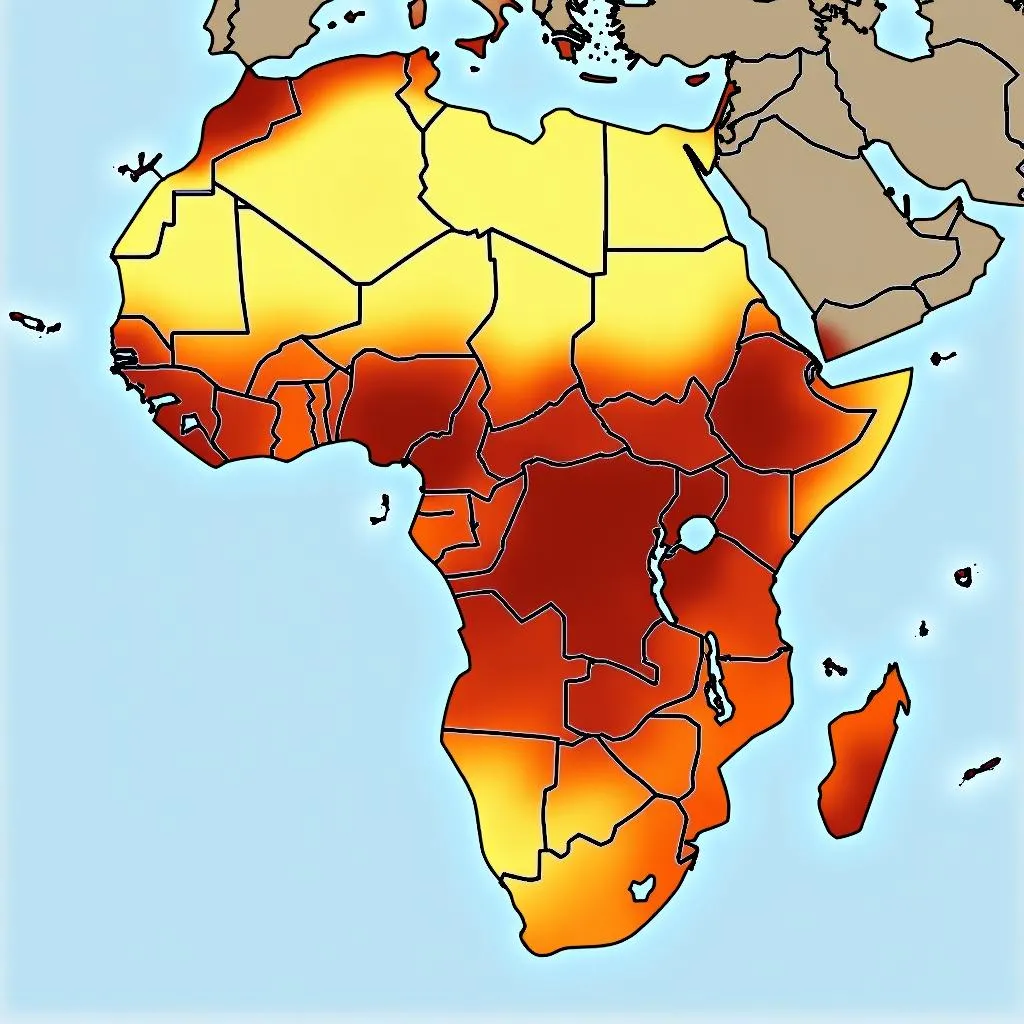Navigating African Data Privacy: A Comprehensive Guide
African Data Privacy is becoming increasingly important in our interconnected world. With the rise of digital technologies and the increasing flow of data across borders, the need to protect personal information has never been greater. This guide explores the complexities of data protection in Africa, examining the challenges and opportunities present across the continent. We’ll delve into existing legal frameworks, cultural nuances, and the impact of global data privacy trends on the African landscape.
Protecting personal data is crucial for individuals and organizations alike. It builds trust, fosters innovation, and safeguards fundamental human rights. However, implementing effective data privacy measures in Africa faces unique challenges. The continent’s diverse legal systems, varying levels of technological development, and socio-cultural factors all contribute to the complexity of the landscape. Understanding these intricacies is key to developing successful data privacy strategies. What are the core principles driving data protection in Africa? How can businesses operating on the continent navigate this complex terrain? Let’s explore the answers to these questions and more.
You can find resources on African data privacy laws to learn more about the specific regulations in different countries.
The Evolving Landscape of African Data Privacy Laws
Data protection legislation is still relatively nascent across much of Africa. Many countries are in the process of developing or implementing data protection laws, often drawing inspiration from international frameworks like the GDPR. This process presents both opportunities and challenges. While harmonizing data privacy laws across the continent can promote cross-border data flows and economic growth, it also requires careful consideration of local contexts and cultural norms.
Key Challenges and Opportunities in African Data Privacy
- Harmonization of Laws: Creating consistent data protection standards across diverse legal systems is a significant undertaking.
- Enforcement: Effective implementation and enforcement of data privacy laws are crucial for their success.
- Capacity Building: Developing the necessary expertise and infrastructure for data protection is essential.
- Public Awareness: Raising public awareness about data privacy rights and responsibilities is critical.
- Cross-Border Data Flows: Balancing the need for cross-border data flows with data protection requirements is a delicate balancing act.
These challenges represent areas where focused efforts can yield substantial benefits. Robust data protection frameworks can enhance trust in the digital economy, attract foreign investment, and empower individuals to control their personal information.
The Impact of Global Data Privacy Trends on Africa
Global data privacy trends significantly influence the development of data protection in Africa. The GDPR, for instance, has served as a model for many African countries drafting their own data privacy legislation. This trend toward stronger data protection standards globally creates both opportunities and pressures for African nations.
Adapting to International Standards
While adopting international best practices can be beneficial, it’s important to ensure that these standards are adapted to the African context. A one-size-fits-all approach may not be appropriate, given the unique challenges and opportunities present on the continent.
“African countries must strike a balance between adopting international best practices and tailoring them to their specific needs,” says Dr. Amina Omar, a leading expert on African data privacy law. “This requires careful consideration of local cultural norms, economic realities, and technological capabilities.”
Building Trust in the Digital Economy Through Data Protection
Strong data protection frameworks can play a vital role in building trust in the digital economy. By protecting personal information, businesses can demonstrate their commitment to ethical practices and build stronger relationships with their customers. This increased trust can lead to greater adoption of digital services, fostering innovation and economic growth.
Empowering Individuals Through Data Privacy
Data privacy also empowers individuals by giving them greater control over their personal information. This control can enhance their sense of agency and promote participation in the digital economy.
“Data privacy is not just about protecting information; it’s about empowering individuals,” says Mr. Kofi Asante, a renowned technology and human rights advocate. “It’s about giving people the confidence to engage in the digital world knowing that their rights are protected.”
If you are interested in tracing your African heritage, you might find resources on African ancestry free helpful. For those seeking connections, information about African dating app options could be beneficial.
Conclusion: The Future of African Data Privacy
African data privacy is at a critical juncture. The choices made today will shape the future of the digital economy on the continent. By embracing a collaborative and context-specific approach, African nations can build robust data protection frameworks that foster innovation, empower individuals, and unlock the full potential of the digital age. Ensuring robust African data privacy is vital for future growth.
FAQ
- What are the main data privacy laws in Africa?
- How does the GDPR influence African data privacy?
- What are the challenges to implementing data privacy in Africa?
- How can businesses ensure data privacy compliance in Africa?
- What are the benefits of strong data privacy for African economies?
- How can individuals protect their data privacy in Africa?
- What is the future of African data privacy?
Scenarios:
- Scenario 1: A small business in Kenya wants to start collecting customer data. What steps should they take to comply with data privacy regulations?
- Scenario 2: A multinational company is operating in several African countries. How can they navigate the different data privacy laws across these regions?
- Scenario 3: An individual is concerned about their online privacy in Africa. What resources and tools are available to them to protect their data?
Further Exploration:
Explore more about related topics such as African black hiden cam and African American Christian websites.
Contact Us:
For assistance, please contact us: Phone: +255768904061, Email: kaka.mag@gmail.com, or visit our office at: Mbarali DC Mawindi, Kangaga, Tanzania. We have a 24/7 customer support team.

